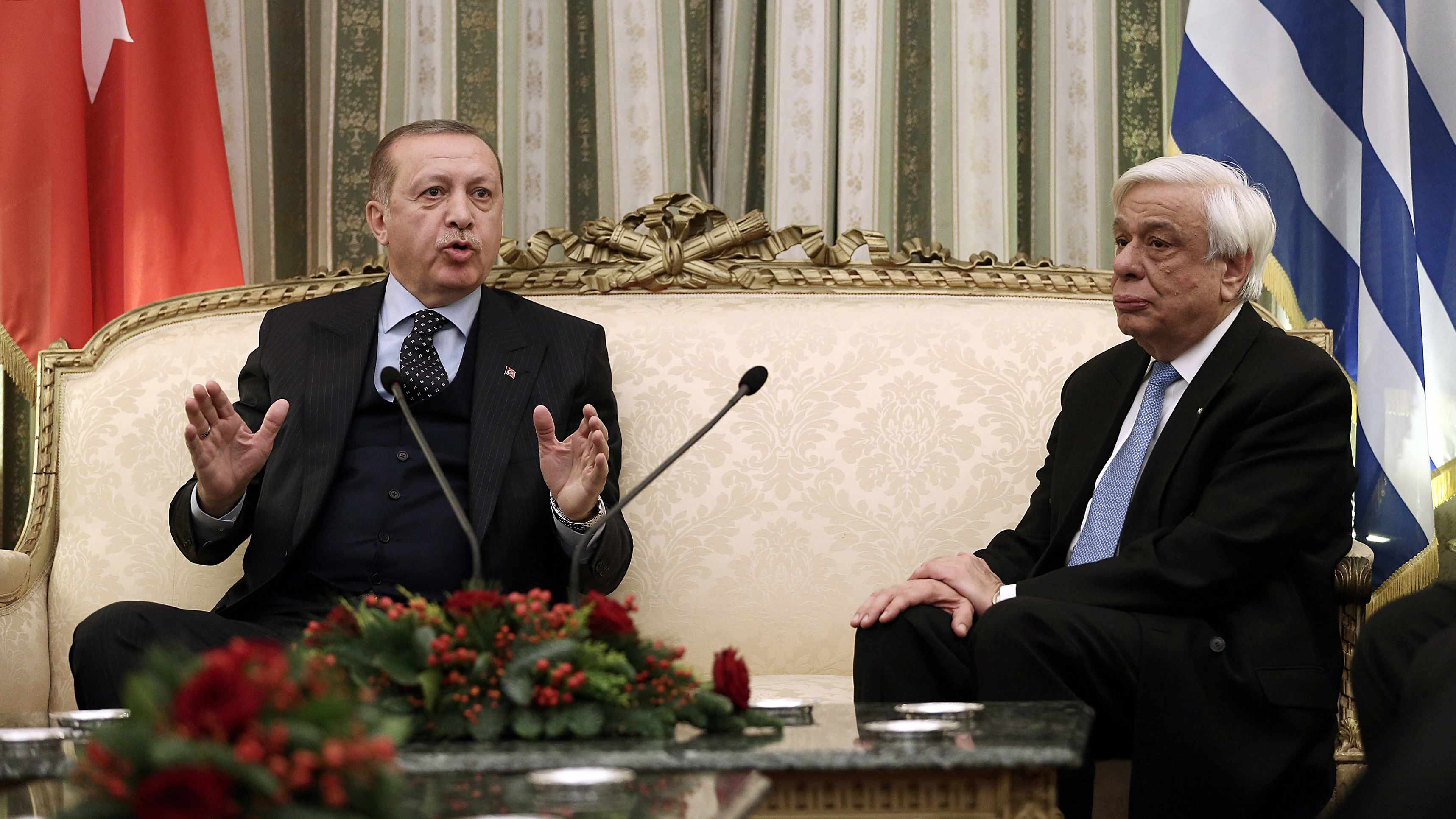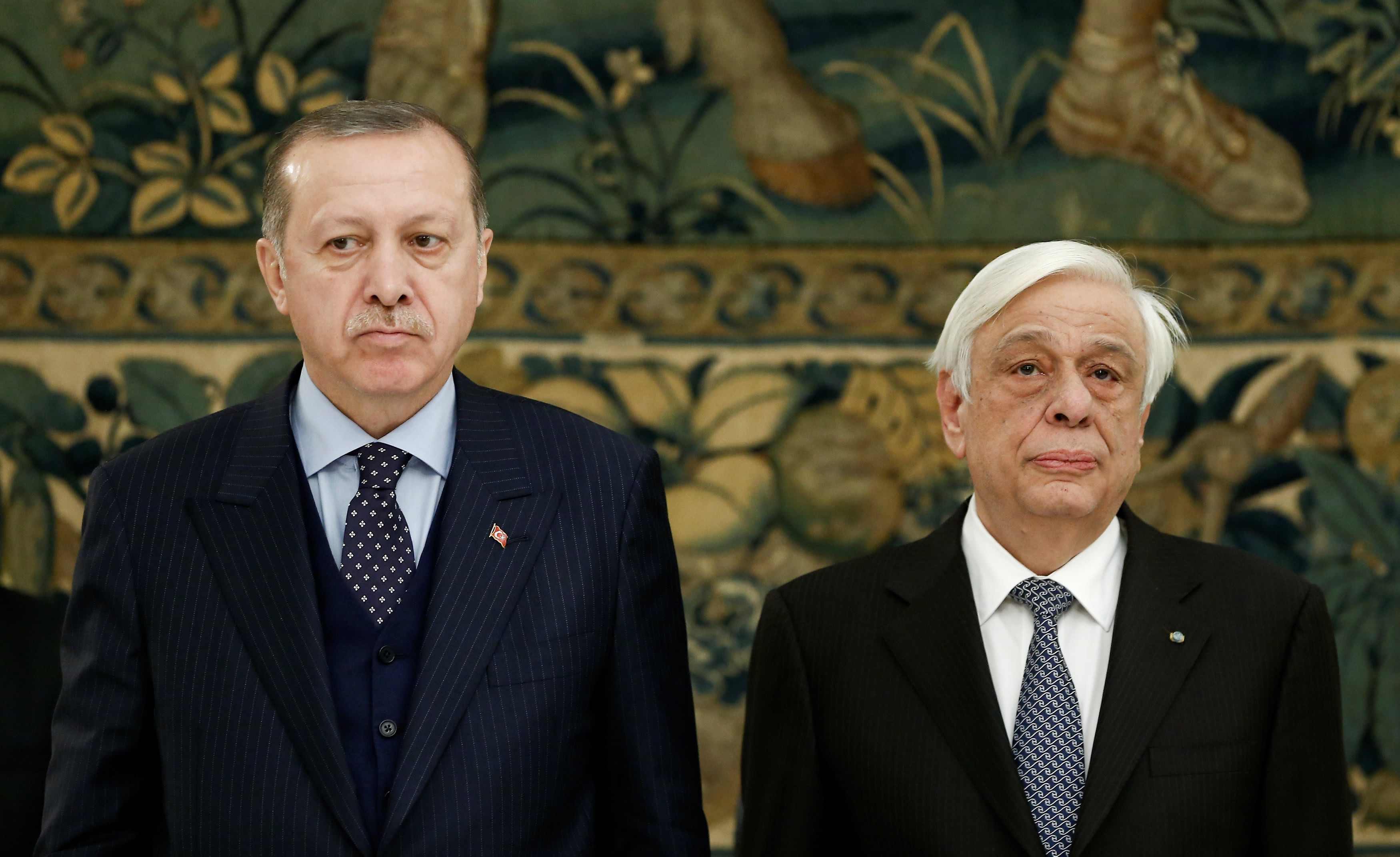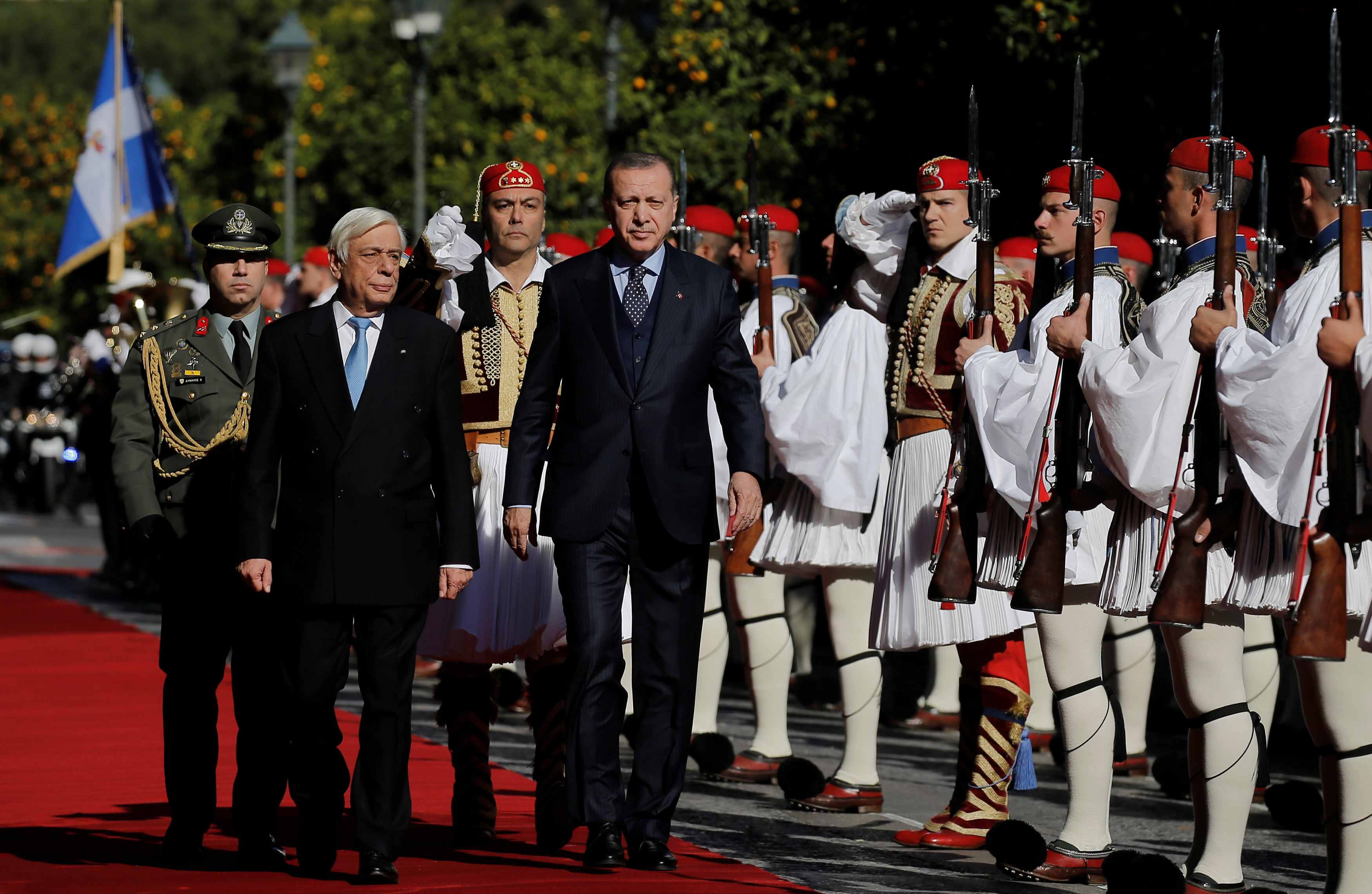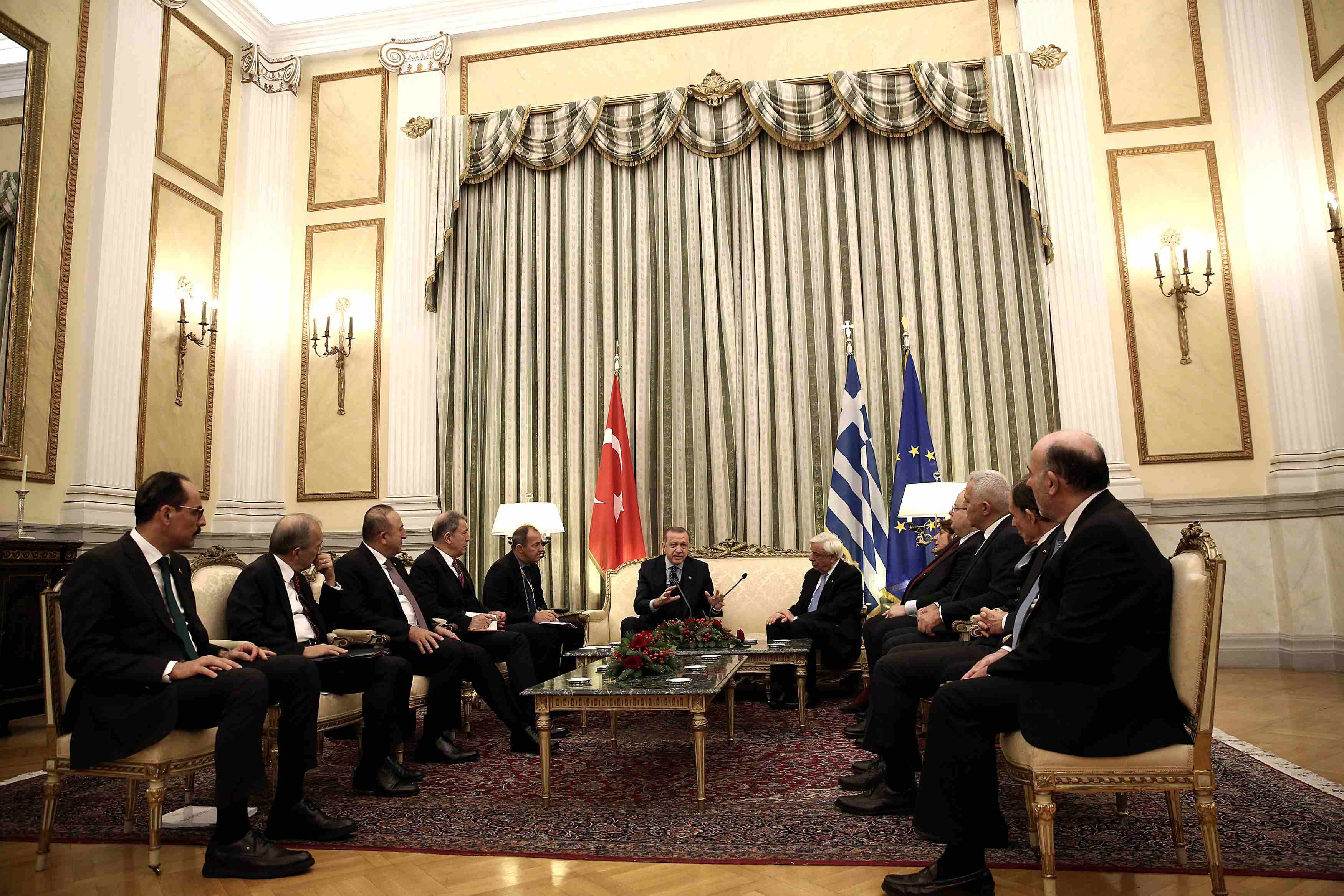
Politics
21:23, 07-Dec-2017
Greece and Turkey trade barbs as Erdogan visits Athens
CGTN

Greece and Turkey squared up over old disputes on Thursday during a state visit to Athens by President Recep Tayyip Erdogan that quickly descended into verbal sparring over a list of historical grievances.
Designed to boost relations between the two nations, the first visit of a Turkish president in 65 years quickly turned into a blunt grudge-fest between the NATO allies.
The two countries agreed to revive a consultation process for confidence-building measures, Prime Minister Alexis Tsipras said. By the end of the first day, both sides appeared to pull back from what threatened to be a massive diplomatic flop.
“There is a lot more which unites us, from that which divides us, as long as there is will,” Greek President Prokopis Pavlopoulos told a state banquet in Erdogan’s honor.

Greek President Prokopis Pavlopoulos and Turkish President Recep Tayyip Erdogan attend
a state dinner at the Presidential Palace in Athens, Greece, December 7, 2017. /Reuters Photo
Greek President Prokopis Pavlopoulos and Turkish President Recep Tayyip Erdogan attend a state dinner at the Presidential Palace in Athens, Greece, December 7, 2017. /Reuters Photo
“We can live side by side,” Erdogan said in a translation provided by Greek state TV. “Our aim is to build the future differently, with unity, coexistence and solidarity,” he said.
Earlier, the two turned what was expected to be a staid welcoming ceremony into an unprecedented bout of diplomatic sparring over a host of differences.
The topics vented ranged from discrimination against Muslims in northern Greece to Turkey’s military presence in ethnically-split Cyprus, and loose interpretations of an international treaty defining the borders of the two countries.
The 1923 Treaty of Lausanne covered a range of issues and defined the borders of modern-day Turkey, and by extension, Greece.
Erdogan told Greek media outlets before he even landed that the treaty needed a revision, putting Greeks in a defensive mode.

Greek President Prokopis Pavlopoulos and his Turkish counterpart Recep Tayyip Erdogan inspect a guard of honor during a welcome ceremony in Athens, Greece, December 7, 2017. /Reuters Photo
Greek President Prokopis Pavlopoulos and his Turkish counterpart Recep Tayyip Erdogan inspect a guard of honor during a welcome ceremony in Athens, Greece, December 7, 2017. /Reuters Photo
At the noon meeting, Pavlopoulos ruled out any change to the treaty while a stern-looking Erdogan, seated beside him, said there were details in the treaty which required clarity.
"The Treaty of Lausanne defines the territory and the sovereignty of Greece and of the European Union and this treaty is for us non-negotiable," Pavlopoulos said during the joint press conference.
"It has no flaws, it does not need to be reviewed, or to be updated," he emphasized.
Speaking alongside Pavlopoulos in Athens, Erdogan said protecting the rights of ethnic Turks within Greece's borders was Turkey's priority.
He said Muslims in the Greek border region of Western Thrace were not able to choose their own chief mufti, while Christian communities in Turkey enjoyed greater freedom to choose their patriarchs, suggesting the 1923 Lausanne treaty was not being applied fairly.
"How can we say Lausanne is in effect? Then Lausanne is not in effect. We need to prove Lausanne's applicability by doing this," Erdogan added.

Greek President Prokopis Pavlopoulos talks with his Turkish counterpart Recep Tayyip Erdoganduring a meeting at the Presidential Mansion in Athens, December 7, 2017. /Reuters Photo
Greek President Prokopis Pavlopoulos talks with his Turkish counterpart Recep Tayyip Erdoganduring a meeting at the Presidential Mansion in Athens, December 7, 2017. /Reuters Photo
Thrace in northeastern Greece is home to a Muslim community of Turkish descent, who are Greek citizens. Greece started appointing muftis itself since 1991.
Erdogan planned to visit Thrace on Friday.
In a tense back and forth between the two leaders, Erdogan also said Greece could not have entered the NATO without Turkey's support.
(With inputs from agencies)
7627km

SITEMAP
Copyright © 2018 CGTN. Beijing ICP prepared NO.16065310-3
Copyright © 2018 CGTN. Beijing ICP prepared NO.16065310-3